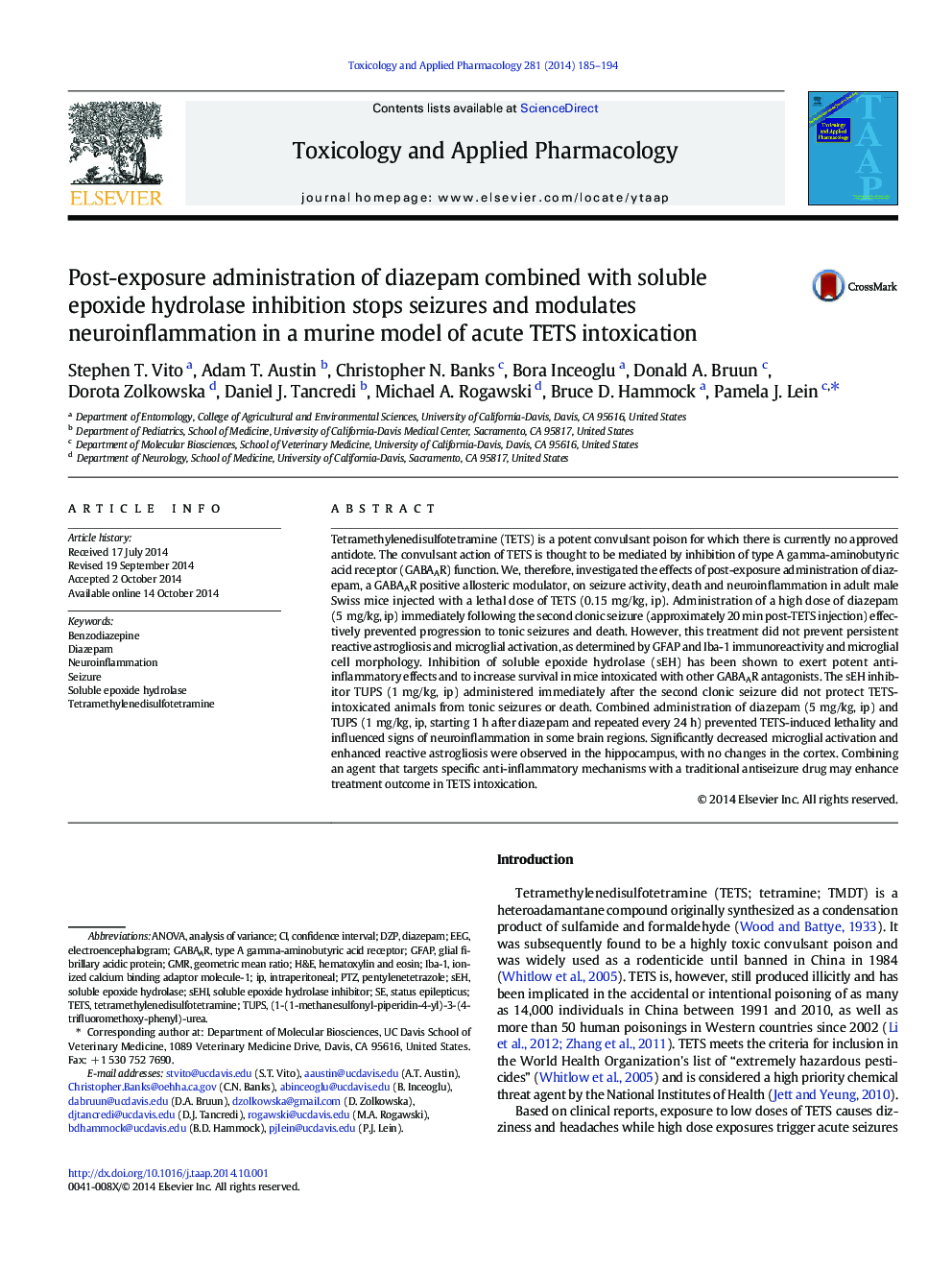| کد مقاله | کد نشریه | سال انتشار | مقاله انگلیسی | نسخه تمام متن |
|---|---|---|---|---|
| 2568382 | 1128442 | 2014 | 10 صفحه PDF | دانلود رایگان |

• Acute TETS intoxication causes delayed and persistent neuroinflammation.
• Diazepam given post-TETS prevents lethal tonic seizures but not neuroinflammation.
• A soluble epoxide hydrolase inhibitor alters TETS-induced neuroinflammation.
• Acute TETS intoxication may be more effectively treated by a combinatorial therapy.
Tetramethylenedisulfotetramine (TETS) is a potent convulsant poison for which there is currently no approved antidote. The convulsant action of TETS is thought to be mediated by inhibition of type A gamma-aminobutyric acid receptor (GABAAR) function. We, therefore, investigated the effects of post-exposure administration of diazepam, a GABAAR positive allosteric modulator, on seizure activity, death and neuroinflammation in adult male Swiss mice injected with a lethal dose of TETS (0.15 mg/kg, ip). Administration of a high dose of diazepam (5 mg/kg, ip) immediately following the second clonic seizure (approximately 20 min post-TETS injection) effectively prevented progression to tonic seizures and death. However, this treatment did not prevent persistent reactive astrogliosis and microglial activation, as determined by GFAP and Iba-1 immunoreactivity and microglial cell morphology. Inhibition of soluble epoxide hydrolase (sEH) has been shown to exert potent anti-inflammatory effects and to increase survival in mice intoxicated with other GABAAR antagonists. The sEH inhibitor TUPS (1 mg/kg, ip) administered immediately after the second clonic seizure did not protect TETS-intoxicated animals from tonic seizures or death. Combined administration of diazepam (5 mg/kg, ip) and TUPS (1 mg/kg, ip, starting 1 h after diazepam and repeated every 24 h) prevented TETS-induced lethality and influenced signs of neuroinflammation in some brain regions. Significantly decreased microglial activation and enhanced reactive astrogliosis were observed in the hippocampus, with no changes in the cortex. Combining an agent that targets specific anti-inflammatory mechanisms with a traditional antiseizure drug may enhance treatment outcome in TETS intoxication.
Journal: Toxicology and Applied Pharmacology - Volume 281, Issue 2, 1 December 2014, Pages 185–194